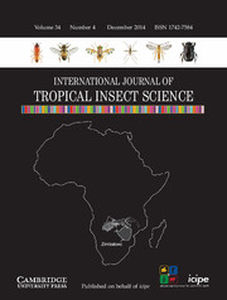No CrossRef data available.
Article contents
Plenary Lecture: Sustainable food production in Africa: The challenge to national agricultural research systems (NARS)*
Published online by Cambridge University Press: 19 September 2011
Abstract
In the years prior to independence, farmers had access to the international market through the production of export crops which at that time received considerable input from research. Access to export crops has dwindled, support for research by national governments is disappointing, human resource development is inadequate, donor funding is uncoordinated, and the food crisis has taken on political dimensions. The assumption that direct importation of western technology can solve the problems of Africa is no longer valid in the face of several failures. The challenge to national agricultural research systems and the problems associated with the generation or adapting of farmer-oriented, location-specific technologies for sustaining agricultural production are discussed. Examples are drawn from India and an agenda for action, involving national governments, the international agricultural research centres and donors, in resolving these problems is presented.
Résumé
Dans les années avant l'indépendance, des cultivateurs ont eu accès au marché international grâce à la production des cultures d'exportation qui bénéficiaient alors d'une forte contribution de la recherche. Mais, maintenant, l'accès aux cultures d'exportation a baissé, le soutien à la recherche par des gouvernements nationaux est peu satisfaisant, le développement des ressources humaines est inadéquat, le financement par des bailleurs de fonds est non coordonné et la crise alimentaire revêt une grande importance politique. La supposition que l'importation directe de la technologie occidentale peut résoudre les problèmes de l'Afrique n'est plus valable face aux plusieurs échecs. Le défi aux systèmes nationaux de recherche agricole et les problèmes lies à la creation ou à l'adaptation des technologies appropriées aux régions spécifiques et visées aux paysans dans le cadre de la production agricole soutenue sont discutés. Des exemples tirés de l'Inde et un programme d'action faisant appel aux gouvernements nationaux, aux centres internationaux de recherche agricole ainsi qu'aux bailleurs de fonds en vue de résoudre ces problèmes sont présentés.
Keywords
- Type
- Part II: Symposium on Insect Pests and Sustainable Food Production
- Information
- Copyright
- Copyright © ICIPE 1991




